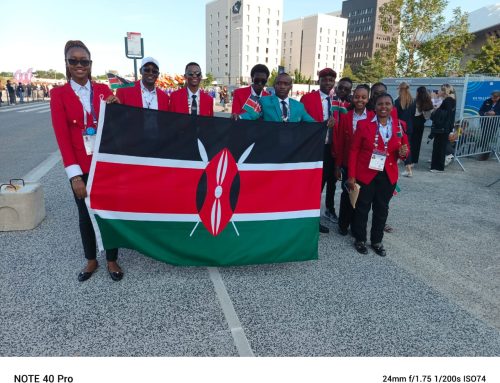The TVET Authority Director-General Dr Kipkirui Langat has today said that gender inclusivity is important for socio-economic development of any country.
Speaking during the launch of ‘Gender Analysis in Kenya’s Technical and Vocational Education and Training sector’ report, a research carried out by Colleges and Institutes Canada (CICan) under the Kenya Education for Employment Program (KEFEP) in the Kenya’s National Polytechnics the DG noted that Sustainable Development Goal no.5 is on gender equality and that the Kenya Constitution also address the issues of gender equality.
“The TVET Authority is mainstreaming gender in the TVET sector as part of the wider reforms to promote inclusivity in TVET. The reforms are geared towards addressing the issues of access, equity, relevance and quality within the purview of gender inclusivity,” the DG said.
He said TVET systems can leverage on technology to support gender inclusivity in all the TVET programs. Institutions can also involve industry, mentors and role models to promote gender inclusivity in TVET.
In his speech, Dr Langat appreciated the work done by CICan and encouraged the use of research to support policy decisions on gender issues.
During the function, the Principal Secretary for State Department for Vocational and Technical Training Dr Kevit Desai said there is need to develop inclusive policies in TVET.
“The Government is committed to promoting inclusivity, access, equity, and relevance in TVET, which are clearly articulated in the TVET Act. There is need for all actors to promote inclusivity and use of innovative approaches to promote access to TVET by the vulnerable groups,” Dr Desai said.
He further said that the Government has invested in infrastructure by putting up new TVET institutions, equipping them, provision of government capitation and financing by HELB to promote access and equity in TVET.
The report presents the key findings and recommendations from a gender analysis that was conducted by CICan, aimed at providing a better understanding of barriers to access, retention and successful graduation from TVET to employment and how they affect women and men differently.
The report recommends for the need to create awareness of gender inequality and address root causes. Similarly, TVET institutions, their management, trainers, curricula, learning materials, classrooms and general institutional environment should deliberately challenge gender-biased stereotypes. In addition, gender-sensitive monitoring and evaluation frameworks should be developed/reviewed, and measurement of progress should be carried out regularly.
It also says there is need to build capacity and for TVET institutions and agencies in the TVET ecosystem to work with employers to embrace gender equality, to change the dynamics of workplaces both to increase the number of women in technical and management positions and to improve the work environment. Mentorship and increasing visibility of women working in “nontraditional areas” is also critical in this respect.



